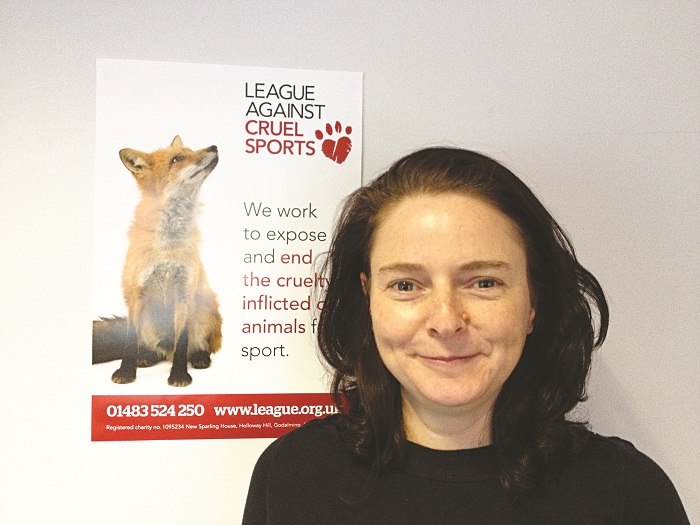
Dawn Varley, director of marketing and fundraising at the League Against Cruel Sports, discusses databases and defending the Hunting Act
How did the League Against Cruel Sports (LACS) start?
The League was set up in 1924 by some disillusioned members of the RSPCA. They’d grown frustrated by the lack of progress being made in banning fox hunting, which is ironic as the RSPCA has been instrumental recently in bringing some of the biggest prosecution cases against fox hunting. It goes to show how things can change over time.
What are the big issues that the LACS will be tackling this year?
Our major priority will be to defend the Hunting Act. Even though the Act was passed in 2004, there are still moves to repeal or weaken it. We’re always keeping our eye on it, however, and recently invested £1m in our investigations team. We now have people going out into the field with video cameras trying to catch instances of illegal hunting.
Our other big campaigns will be against shooting for sport and the badger cull. The government’s said it’s postponing the badger cull to the summer. But that’s not good enough for us: we don’t want a reprieve; we want a full pardon for the badgers.
What are the criteria for deciding whether a sport is cruel? Isn’t it a bit subjective?
It’s all about the welfare of the animal. We’re not the League Against Having Fun and we’re not the League Against Sports: we’re the League Against Cruel Sports. If you have to involve an animal as part of a sport, then you have to take seriously the welfare of that animal. A topical example is the Grand National. The past couple of years have seen horses die for the sake of betting and the enjoyment of that race. We have an issue with that because you could design that race in a way as to avoid horse deaths. Until that course is amended with animal welfare in mind, we’ll campaign against it.
What about the argument that we need to hunt animals as a means of pest control?
If we take the badger cull as an example, the government’s argument that the badger population needed to be controlled was nonsense. For starters, it didn’t know how many badgers were in the south-west of Britain, where the cull was due to take place. So when it was proposed that 70 per cent of that badger population in that area needed to be culled, the question naturally arose: ‘70 per cent of how many?’ The government had no idea, and that’s one of the reasons the cull was postponed.
In the case of foxes, if you know anything about basic fox ecology, you’ll know that they control their own numbers depending on the food supply in the area. That’s why London has quite a few of them as we don’t take care of our bins. Equally, the argument that foxes eat chickens could be easily solved by some basic animal husbandry: invest in a proper chicken coup that foxes can’t break into.
So the vermin control argument holds no truck with us. Besides, if you do need to control animal populations, there are much better ways of doing it than setting a pack of hounds on a fox.
Where does the bulk of your funding come from? And how do you go about raising funds?
We don’t get any statutory funding. We’re totally reliant on donations from the general public, and always have been. Traditionally, we’ve been really lucky in that about half of our money comes through legacies. However, that also puts us in quite a precarious position as it means our income is not within our control. So we’re undertaking a programme at the minute to make our fundraising schemes more controllable. We’re focusing on the regular giving side of things and on cold recruitment to grow our database. We want a better mix. We’re very happy to get legacies, and love our members for being so committed to leaving us gifts in their wills, but we also want to expand our income streams.
On Twitter, you describe yourself as a ‘tech geek’. How important is technology to the fundraising sector? And how can people better utilise it?
These days, I think it’s impossible to fundraise or campaign effectively without using technology. Unfortunately, people still look at databases as boxes of boring statistics. Actually, those statistics represent your supporter community: the very people who say, ‘I agree with what you’re doing; tell me more about it.’ We do ourselves a disservice as a fundraising community if we don’t embrace the database. I know that sounds really sad, but it’s true. The best fundraisers I’ve worked with understand that data isn’t just statistics; it’s people.
Dawn Varley is director of marketing and fundraising at the League Against Cruel Sports
This article first appeared in The Fundraiser magazine, Issue 26, February 2013




